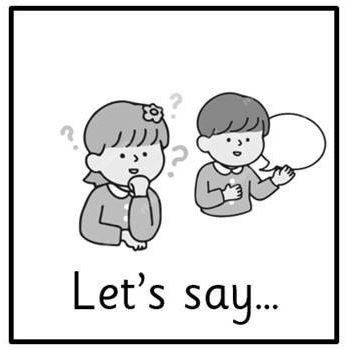English
Welcome to the English page! I am Miss Holliday, the English Lead at Riddlesden St Mary's CofE Primary School and Nursery.
Providing all children with a highly effective curriculum offer is at the heart of all we do. We want to instil a love of English and to teach both reading and writing skills so that our children. We want children to develop a life-long love of English and to achieve their full potential academically.
Our primary goal in teaching English is to engage and inspire children in both reading and writing. Our curriculum is centered around texts, with a strong emphasis on exposing children to rich language, a broad and ambitious vocabulary, and a diverse range of writing. We strive to foster curiosity in our children and cultivate their enthusiasm for oracy, understanding that the skills and knowledge they acquire through oracy are invaluable. We continually review our text selections to stay aligned with the evolving world, encouraging children to explore a wide variety of genres. In addition to our text-based English curriculum, we offer a comprehensive and structured phonics and spelling program - Little Wandle.
Whenever possible, we make meaningful connections between the skills of reading and writing, highlighting their importance across the Primary School Curriculum.
Below you will find our whole school English Strategy. This incorporates all elements of English teaching and learning including: early reading, progression of reading comprehension throughout school and writing including handwriting.
English Strategy
Handwriting Strategy
Reading and Writing Progression Documents
rsm reading progression document .pdf
rsm writing progression document .pdf
English Adaptive Teaching
english adaptive teaching mat.pdf
English Action Plan
english action plan proforma.pdf
The 100 Club!
All the staff at Riddlesden St Mary's have created a list of fantastic reads for you to enjoy over your time here at school with us. Can you take on the challenge and be part of the 100 Club by reading all 100 books before you leave Year 6?
You will copies of all the books in the school library and you might find some in your class reading area too! If there is a certain book you would love to read in class, let you r teacher know and they could read it as the class story next term!
Happy reading!
Click here to view the 100 club books!
Where do we read in school?
In school, we read in a variety of places, both inside and outside of the classroom. Here are some common locations where reading can take place: The Reading Nook, The Library, corridors, learning spaces, classroom reading areas...EVERYWHERE!
The Reading Nook!
Did you know we have our very own outdoor Reading Nook? Inside there are endless adventures awaiting...from fiction to poetry, get yourself comfy and enjoy some time reading.
The Library!
Below is our school library - a space at the heart of our school. We have a fantastic array of books that allows children to satisfy their curiosity and stimulate their creativity!
Don't forget to check out our reading recommendations!
Reading For Pleasure Zones!
We are developing more reading zones within school, here is one we've already got in Y1!
Our 'Botheredness' Culture 
Let's Say...
Over the last couple of years we have been transforming our English curriculum with elements of Oracy. We have adopted Hywell Roberts Botherness approach to teaching and learning by embedding the 'Let's Say...' scenario. This focuses on 'people, place and problem'. We recognise that oracy is an essential skill that goes beyond just reading and writing; it focuses on our children's spoken communication abilities. The importance of oracy within the school setting is increasingly recognised for its role in developing critical thinking, social skills, and academic success.
Writing
Writing is an essential skill for our pupils, and it plays a key role in encouraging, enriching, and enabling their development. At RSM, we recognise the importance of writing as a powerful tool in shaping young learners. Here’s how writing helps to encourage, enrich, and enable our pupils:
Encouraging Expression and Creativity
Writing encourages students to express themselves clearly and creatively. It helps children organize their thoughts, share their ideas, and communicate effectively with others. Through writing, students can explore their imagination, whether they’re crafting stories, poems, or journal entries. This process builds confidence, as children see their ideas come to life on paper, and encourages them to continue thinking critically and creatively.
Enriching Learning Across Subjects
Writing enriches students’ learning experiences by allowing them to deepen their understanding of various subjects. Whether it’s writing about science experiments, reflecting on historical events, or explaining mathematical concepts, writing helps solidify knowledge. It also enhances vocabulary and language skills, enabling students to articulate their thoughts in a more sophisticated way. By engaging in writing across different subjects, children can develop a broader and more integrated understanding of the world around them.
Enabling Success and Critical Thinking
Writing is a vital skill for academic success and personal growth. As children learn to write, they develop critical thinking skills by analysing information, making connections, and organizing their ideas coherently. Writing also enables students to demonstrate their understanding, solve problems, and communicate solutions effectively. These skills not only support academic achievements but also empower children to navigate the world with confidence, whether in their studies or later in life.
At RSM, we encourage our pupils to embrace the power of writing as a tool for learning, creativity, and personal expression. Writing is at the heart of our approach to education, and we are committed to providing opportunities that enrich and enable every child’s journey toward success.
We often find ourselves wondering about the future of writing, where it may lead us and who amongst us may be a future author?


